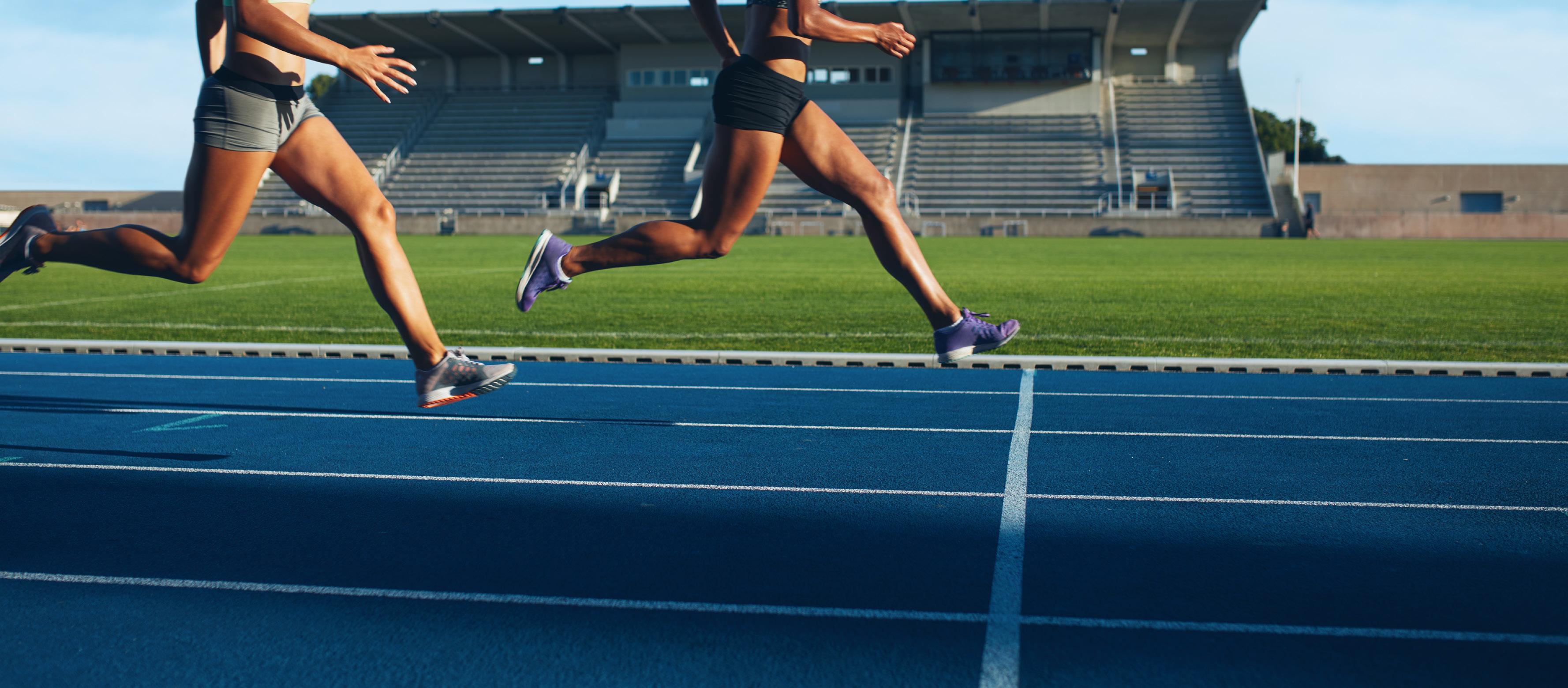
5 minute read
Women in Sports - A Fair Playing Field
Sports Champions - Scoring Equality Goals With Sport
By Jessie Taylor
Women’s athletes have been in the limelight over the last year following an unprecedented rise in the popularity and celebration of women’s sports. This, in turn, will encourage the participation of girls in sports, which has the power to create more equal societies.
In 2023, several World Cup tournaments across various sporting codes delivered impressive stadium attendance figures and viewership numbers to back it up, according to Nielsen Sports SA’s Women At The Forefront 2023 Report.
The report found that the viewership of women’s sports broadcasts in South Africa showed an 11% growth between September 2022 and August 2023. Among the tournaments that were most viewed were the FIFA Women’s World Cup, which had an increase from 695,680 viewers per match to 2,030,079; ICC Women’s T20 Cricket World Cup, showing a rise from 56,661 to 313,316 per match, and the Netball World Cup increasing from 279,470 to 1,532,033.
“The impact and visibility of these tournaments have transcended the boundaries of the sport – it’s inspired a generation of young girls to pursue their athletic dreams and reinforced to the sporting community the importance of levelling the playing field for female athletes,” said Tumelo Selikane of Nielsen Sports South Africa.
Increased participation of women and girls in sports supports women’s empowerment and advances gender equality.
President Cyril Ramaphosa said that compet ing in sports fosters a sense of empowerment among women, helping them build confidence in their abilities and bre aking gender stereotypes. Through sports, he said, women can challenge societal norms, experiencing personal growth and achievement. “Female athletes are inspiring role models and can make the most of their status to raise awareness around gender issues and to demand change,” he said.
He said that all of these can enable women and girls to be more assertive and confident in society and can support the fight against discrimination and gender-based violence. These are just some of the South African women creating a more equal society through sport:
Caster Semenya
Caster Semenya has two gold Olympic medals to her name, as well as the title of world champion, but has now set her sights on advocating for human rights.
She has written a memoir The Race to be Myself and in an interview with Time said: “You want to tell a story when you’re in a good state of mind. When you’re at peace. As well as when you have enough time. It’s about time I support those who need me. It’s a reminder to those out there who feel rejected that they belong. The most important thing that you can do for yourself is just to accept yourself for who you are. Appreciate yourself, embrace yourself. Just make yourself happy.”
Ashleigh Moolman-Pasio
South African cyclist Ashleigh Moolman-Pasio is a cycling force to be recorded with, on tar and now on gravel. She placed sixth at the Women’s Tour de France last year and recently excelled at the Earth Gravel Series. She also holds the distinction of being the first UCI World Champion in Cycling Esports.
Ashleigh entered professional cycling after picking up the sport while studying chemical engineering at Stellenbosch University. She has demonstrated a fighting spirit for much of her life after suffering a severe traumatic brain injury during a horseback riding accident as a child.
However, Ashleigh has also decided to put her immense talent and success towards helping the next generation, empowering African women through e-cycling and computer learning. “Virtual cycling creates an opportunity for growing female participation and empowerment because they feel safer and more confident interacting with other riders on a trainer in the comfort of their home.”
She has partnered with a bike shop operating out of shipping containers in Khayelitsha, Cape Town, to mentor 30 girls participating in the Cape Town Cycle Tour. She also hopes to establish E-Centers, indoor training and computer learning centres, to reach more underprivileged communities throughout the continent.
Louzanne Coetzee
Long-distance para-athlete Louzanne Coetzee brought home South Africa’s first gold medal at the Para Athletics World Championships. Now, she has her sights set on bringing home a medal at the 2024 Paralympics Games in Paris in August.
Louzanne was born blind as a result of a hereditary condition and competes in the T11 disability class for athletes with the highest level of visual impairment. During track events, she is guided by a sighted athlete and already holds two Paralympic medals for her performance in Tokyo in 2020, where she won a silver medal for the T11 1 500m and a bronze in the women’s T12 marathon.
Louzanne started the Team Louzanne Coetzee Foundation to give back to rural, disadvantaged, and disabled communities across South Africa. The Foundation provides education to the country’s aspiring para-athletes and aims to empower differently-abled athletes with opportunities to compete in a variety of para-sports. “I have always been passionate about giving back to my community”.
Sport has the power to transform societies by empowering girls and women. But these sports champions are going even further to ensure that women have access to opportunities and creating a fairer society for all.










